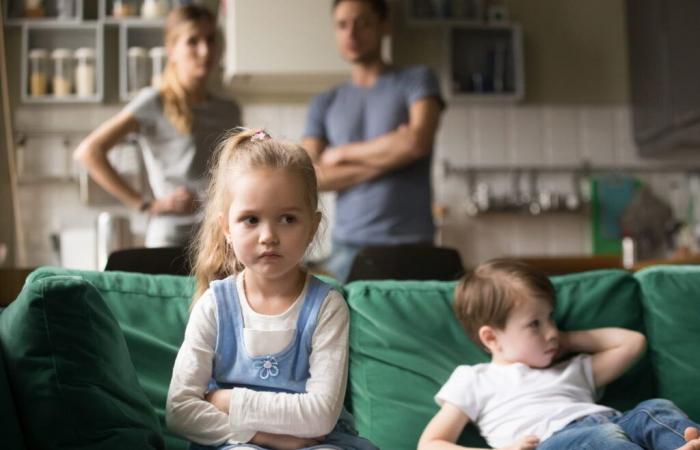This behavior, often recurrent among parents, can have real consequences on the child’s development. Psychologists explain why.
All parents know: children very quickly develop a tendency toward “mimetic reproduction.” Younger people do what they see, especially the actions of the people who care for them every day. And this is partly explained by the presence of cells in the brain, called “mirror neurons”. They are activated when an individual performs or imagines an action. For some scientists, they play a role in social cognition, particularly in learning by imitation.
So be careful what we do in front of our children! As parents, there may be times when our emotions overwhelm us. A disagreement, a broken glass, a poorly cleaned plate… It is not uncommon to lose one’s composure when faced with the hassles of everyday life. But what do children think of these angry outbursts? In his book For a happy childhoodpediatrician Catherine Gueguen underlines the importance of parental attitude on the child’s development: “When parents and adults around the child are respectful and empathetic, the child does the same. Conversely, when these adults shout, hit and humiliate, the children also imitate them.
This is one of the reasons why parents are advised not to argue in front of their children. “This is insecure, because they have difficulty understanding why their parents put themselves in this emotional state, with changes in voice, face, unusual cries. It can be very disturbing to see them express this type of emotion. strong emotion”, explains psychologist Rachida Raynaud in Parents magazine.
By witnessing a couple’s argument, the child, usually placed in a protective bubble, comes into collision with their intimacy. And if the subject of the disagreement concerns his education, it can be even more devastating. In the long term, if conflicts prove too frequent, consequences on its development are to be expected. “A conflicting family environment means that the child may not feel secure in his bond with his parents. This instability generates anxiety,” continues the psychologist.
Through mimicry, he may also encounter difficulties in expressing his anger. Although we tend to classify it as a “bad emotion,” anger is a necessary warning signal. If it is healthily expressed, that is to say with a desire to communicate and not to be violent, it is even beneficial. This is why it is all the more important that the child learns to manage it, drawing inspiration from a healthy parental pattern. It is therefore not a question of stopping arguing, but of avoiding, as far as possible, making them a collateral victim.







